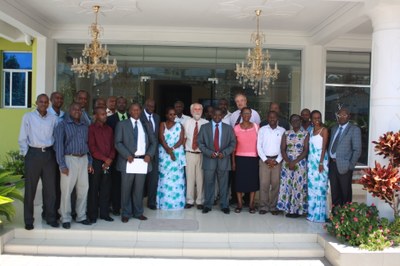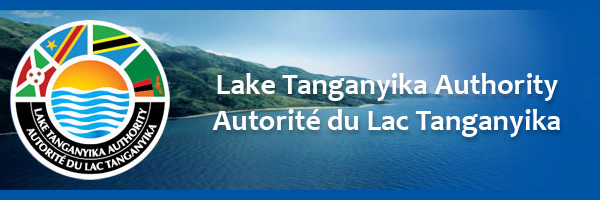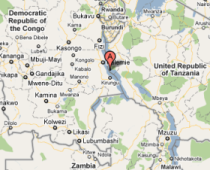Need for biological control of invasive plants affecting Lake Tanganyika in Burundi
LTA, 8th May 2012 - The association Greenbelt Action for Environment (ACVE) and Lake Tanganyika Authority (LTA), in collaboration with the International Union for the Conservation of Nature (IUCN), UNOPS, and the UNDP/GEF Project, organised, on Thursday May 3rd, a workshop on biological control of invasive plants affecting the Lake Tanganyika ecosystem in Burundi.
- The association Greenbelt Action for Environment (ACVE) and Lake Tanganyika Authority (LTA), in collaboration with the International Union for the Conservation of Nature (IUCN), UNOPS, and the UNDP/GEF Project, organised, on Thursday May 3rd, a workshop on biological control of invasive plants affecting the Lake Tanganyika ecosystem in Burundi.
Participants to the meeting recommended carrying out a preliminary survey and researches to ensure that the process will not result in unpredicted negative impacts, learning from the sub-region experience such the biological control in Lake Victoria, controlling the economic use of invasive species.
About this, LTA was suggested to undertake field visits to sensitize riparian countries in order to eradicate invasive species which have negative impacts on fisheries, biodiversity, human health, diversity, livestock, ecosystem health and infrastructures.
Mr. Déo Babonwanayo, assistant in the Ministry of Water, Environment, Land and Urban Planning, indicated through his opening speech that, Burundi will do its best to preserve this lake biodiversity which is an important resource for the country. Nevertheless, he deplored that Lake Tanganyika treasury could disappear if the invasive species continue to invade its shores.
The LTA representative in the ceremonies, as he is concerned, mentioned that invasive species can cause important damages to an ecosystem like Lake Tanganyika and its catchment area. He also emphasized that the workshop discussions should focus on the process to develop efficient control and management process for two invasive plants of water hyacinth and mimosa diplotricha.
Document Actions













